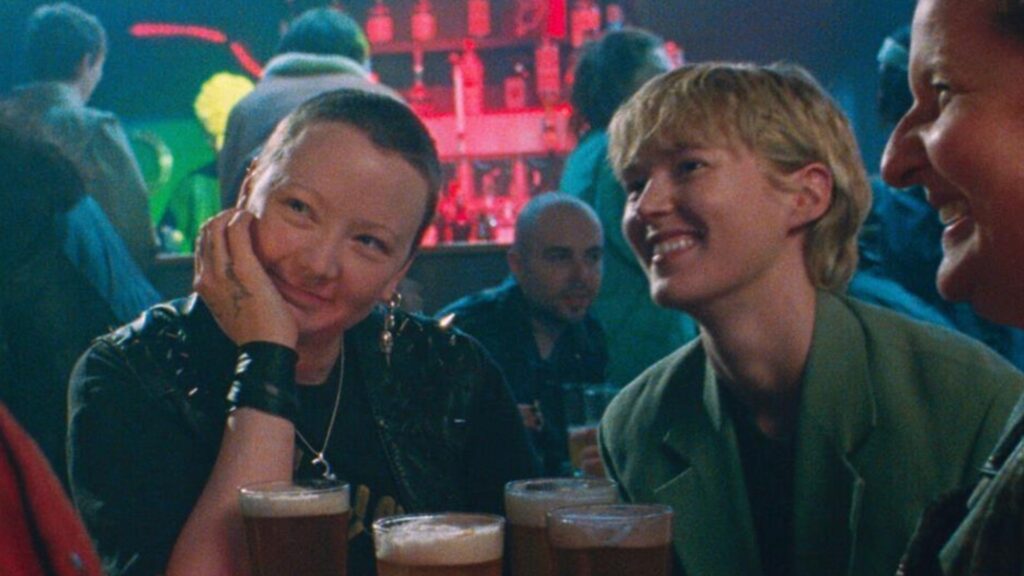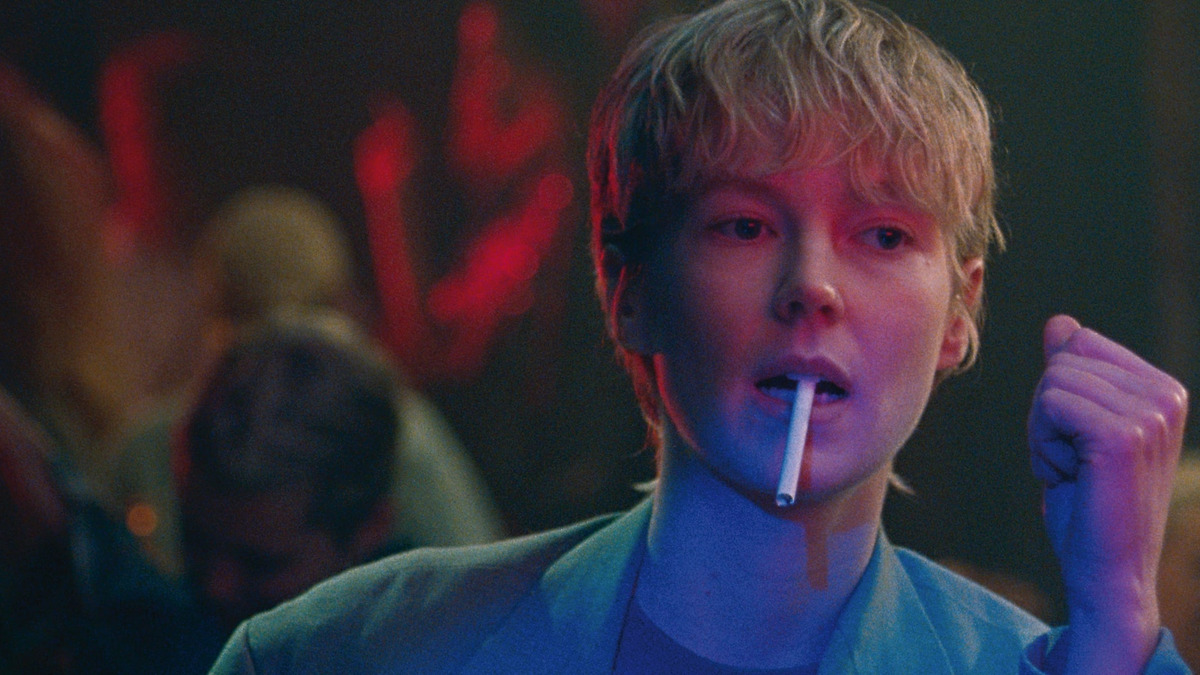Georgia Oakley’s absorbing debut feature Blue Jean is perfectly timed in its story of a closeted lesbian school teacher navigating intricate webs of personal and professional turmoil within the constricting confines of conservative 1980s society. Set against the backdrop of Thatcher-era Britain, where anti-gay legislation casts a shadow over individual freedoms, Oakley deftly crafts a slow burn exhumation of recent history to issue a stark warning about our current sociopolitical trajectory: defy complacency or risk losing everything.
Opening in 1988 Newcastle amidst rising cultural support for the insidious Section 28 legislation forbidding the positive acknowledgment of homosexuality within British schools, Jean (a star-making performance by Rosy McEwen) is a closeted physical education teacher and basketball team coach. Cognizant of the prevailing social climate, she deems the concealment of her personal life and sexual orientation from fellow instructors and students a necessary act of compartmentalization—a calculated safeguard. The fragility of her self-imposed imprisonment will be tested.
Enter new student Lois (Lucy Halliday), bullied and outcast by school cliques and searching for community at the gay bar where, coincidentally, Jean seeks nightly solace from her professional charade, notably with her faithful—and very out—girlfriend, Viv (an expert Kerrie Hayes), increasingly alienated by Jean’s dual life. Jean’s bargain comes at significant cost, preventing her from embracing her authentic self (unlike her ribald circle of friends, unrestrained in their self-expression).

Observing her colleagues’ tacit endorsement of Thatcher’s regressive agenda, Jean well knows that she could easily become a target of rising, anti-gay currents. But when Lois is shamed and illegitimately expelled and Jean remains a passive bystander, she will face a personal reckoning.
In Oakley’s impressive film, McEwan’s portrayal of Jean, a waifish and tomboyish figure navigating the treacherous terrain of professional assimilation, is a masterclass in the art of inhabiting an internal world amidst minefields. From dyeing her hair an ultra-feminine blonde to suppressing hetero romantic prospects despite the urging of colleagues to desperately attempting to engage in banal work dinners where she expressly feels the outsider, McEwan’s performance is a tour de force, revealing the inner turmoil of a discreet professional in a society marked by paranoia and the ominous “don’t say gay” mentality reminiscent of contemporary Florida.
Every aspect of Jean’s life seems to bristle with insinuations of homophobia and casual microaggressions, reaching a boiling point as she endures a haranguing by a male party guest prying into her romantic life. It is within these tense encounters that McEwan’s ace portrait captures the quagmire of navigating a heteronormative world, one lacking representation, allyship and protective laws. Oakley paints a vivid picture of this oppressive environment, with colleagues, relatives, partygoers, adolescents and even a casual television dating show embodying the prevailing heteronormative paradigm, unable to be questioned.
As Jean grapples with the choice between a life in the closet and advocating for herself and the marginalized Lois, the film suggests, with great honesty, that in the absence of legal and cultural securities, community becomes the ultimate form of protection. The absence of a grandstanding, heroic finale may disappoint those yearning for a moment of cathartic public revelation. Yet the oblique final moment speaks to challenges faced by individuals like Jean, navigating different worlds and identities, yearning to speak their truths, who defy apathy and find courage on behalf of themselves and others.
3 stars



